Subscribe to our new Telegram channel for the latest updates and stories.
After the government announced that the National Recovery Plan will be implemented state by state instead of nationwide and that 5 states will go into Phase 2 on July 5, new SOPs were released.
Read More: Five States To Go Into Phase 2 on 5 July
For your convenience, TRP took the liberty of translating the latest Phase 2 standard operating procedures (SOP) released by the National Security Council (MKN) which came into effect on the same day, 5 July 2021.
The new Phase 2 SOP has a bigger list of allowed activities compared to the previous Phase 1 SOP released on the same day.
The changes are many, most notably in the public, economic, education, and sports sector. So we marked all the differences in ‘orange‘.
Areas Involved
- KELANTAN, TERENGGANU, PAHANG, PERAK, AND PERLIS.
Duration
- From 5 July 2021 (12.01 am)
Fixed Instructions
- Regulation 16 PU(A) 293/2021.
- Prevention and Control of Infectious Diseases Act (Act 342).
- Emergency Ordinance (Prevention and Infectious Disease Control) (Amended) 2021.
- Subject to orders issued by MKN, the Health Ministry (KKM).
- Instructions and rules provided by Local Authorities (PBT).
- Subjected to reports made in the Hotspots Identification for Dynamic Engagement (HIDE) system and risk assessment by KKM.
- Other orders/instructions issued by the Health Department Director from time to time.
ALLOWED activities
- Essential economic sectors that have been permitted.
- Acquiring or purchasing necessary supplies.
- Getting healthcare or medical treatment.
- Performing official government duties.
PROHIBITED activities
- Inter-district and inter-state movement within MCO areas without permission from the Royal Malaysian Police (PDRM)
- Movement and travel in and out of MCO areas without permission from PDRM.
- Activities listed in the ‘Negative List’.
Movement and travel
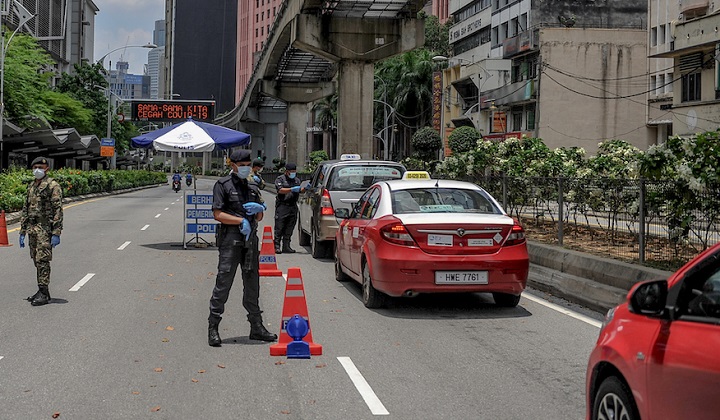
- Inter-district and inter-state travel (based on district boundaries specified by State Governments) are not allowed.
- PDRM are responsible for implementing control over local areas of infection with help from the Malaysian Armed Forces (ATM), the Malaysian Civil Defence Force (APM) and the People’s Volunteer Corps (RELA). Entrances to MCO areas are closed and guarded by PDRM.
- Only two (2) people from each household will be allowed out in order to obtain food, necessary supplies and medicine in areas within 10km of their residence.
- A maximum of three (3) people – including patients – are allowed out in order to acquire medical and healthcare services, Covid-19 test screenings or in the case of emergencies within a 10km radius from the residence or the nearest place available if such services are not available in the area.
- Only two (2) people – including the driver – are allowed to travel in taxis and e-hailing rides. Passengers must be seated in the back seat.
- The number of passengers allowed to travel in commercial vehicles and transportation involved in the economic supply chain (except worker transports like busses and vans) will depend on the vehicle registration license.
- The number of passengers allowed in Department Vehicles or Official Government vehicles will depend on vehicle capacity.
- All airports and seaports services and activities are allowed.
- Loading and unloading of non-essential items at factories will only be allowed for the purpose of shipping and receiving goods or cargo in stockpiles for imports and exports from 8 am to 8 pm on Mondays, Wednesdays, and Fridays, and with only a limited number of workers allowed to be present.
- The loading and unloading of essential goods are not limited by the rules (above) and can operate as normal.
- Sea and land public transport services such as ferries, busses, express busses, LRT, MRT, ERL, Monorail and others are allowed to operate at 50% vehicle capacity. (operational hours and frequency are to be determined by the Transport Ministry (MOT)).
- Travel in cases of death, natural disasters and other emergencies are allowed with prior permission from PDRM.
- Travel for disaster or humanitarian aid and relief by non-governmental organizations (NGO) must obtain the permission of the State Disaster Management Committee (JPBN) or District Disaster Management Committee (JPBD) of the affected area. The aid must be channelled through the Disaster Operations Control Center (PKOB) in the area.
- Travelling across district and state borders for Covid-19 vaccinations at Vaccination Centers (PPV) outside of your district/state of residence is allowed by presenting your appointment details provided on the MySejahtera application, website or text message (SMS).
- Members of Parliament (MP) and Assemblymen (ADUN) are allowed to travel across district and state borders in order to visit their constituents without organizing a formal event.
- Long distance married couples are allowed to travel to and from states in Phase 2.
- Short-term business traveller under the One-Stop Center (OSC) initiative is allowed with prior permission from PDRM.
General Health Protocols
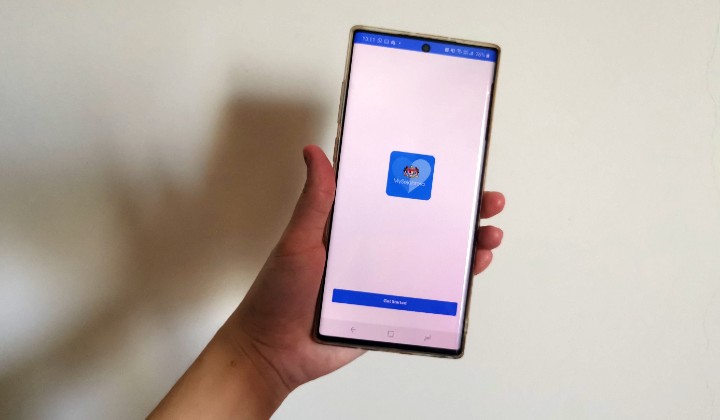
- Premise owners or licensees must ensure customers enter and exit a premise in a controlled manner and maintain physical distancing of at least 1-meter.
- Premise owners or licensees must provide QR code for MySejahtera check-ins or a book for manual customer attendance record.
- Hand sanitisers must be provided at the entrance and must be used before entering the premises.
- The use of the MySejahtera app is a must except in places with no internet access. The use of a manual attendance log is only allowed in areas with no internet access or any other reasonable reason such as; elderly people, or people who don’t have smartphones, etc.
- Licensor and owner of the premises must make sure customers check-in with the MySejahtera app or manually sign-in with their name and phone number if there is no internet coverage.
- It is a must for store owners, staff, and visitors to check-in using the MySejahtera app or manually with their name and phone number written clearly (if there is no internet coverage), to enter the premises. The same rules will apply for entry to any public or private office/building.
- For shopping malls, supermarkets, or department stores, customers only need to undergo body temperature checks ONCE at the entrance of the business complex – not at every store.
- Those with a body temperature above 37.5°C are not allowed to enter the premises.
- Storeowners inside or outside a complex must ensure that only individuals with ‘Low-risk’ and ‘Casual Contact Low Risk’ status in their My Sejahtera app are allowed to enter the premises.
- CHILDREN under 12-years-old are not allowed to be in public spaces except for emergencies, medical reasons, education and exercise.
- Licensor and owner of the premises must limit the number of customers/visitors on premises – taking into account the minimum 1-meter physical distancing rule.
- Each store/premise must PUT ON DISPLAY the number of customers/visitors allowed into the premises at a single time and it’s encouraged for store owners to provide ‘queue’ numbers’ or tickets to better manage customers.
- Check-in QR codes must be made available at all levels of the building.
- Workers, suppliers, and customers must wear face masks properly according to Health Ministry (KKM) guidelines while on-premises.
- Building owners must ensure proper ventilation and ventilation systems at the premises.
- It’s a must for everyone to wear face masks, especially in public and crowded areas, except when during the following activities/places;
- Hotel rooms or personally paid accommodation or with household/family members.
- Solitary workspace.
- Outdoor sports and recreational activities.
- Personally owned vehicle and with members of the same household.
- Indoor/outdoor public areas and places without the presence of other individuals.
- While eating and drinking in public without any other individuals (other than in restaurants or food premises).
Work
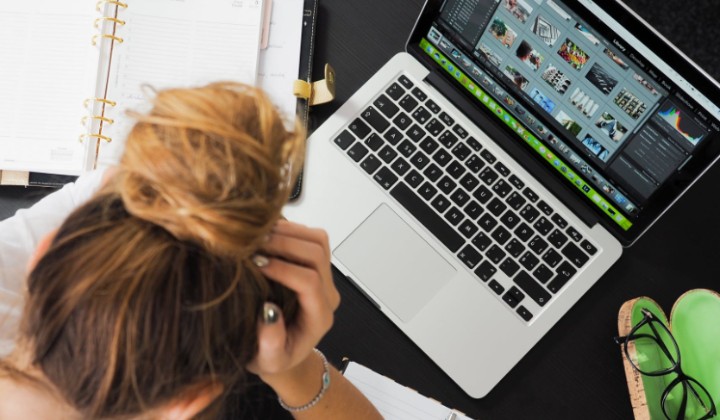
Public sector
- Operations of government offices will implement a hybrid system, a combination of working from the office and Working From Home (WFH) using the following approach:
- Office attendance not exceeding 40% (excluding frontliners, security, defense and enforcement services) and 60% WFH by rotation.
- Service counter availability is subject to the direction of the Chief Secretary of State (KSN).
- Attendance to the office must include official orders document and work pass.
*Subject to direction of the KSN.
Private sector
- All service sectors that have been approved by associated Ministries or Agencies CAN operate within the MCO period – subject to associated Ministry approval letters issued. Employee movement is subjected to registrations, operation approval letter, work pass, or employer confirmation letter.
- The capacity of employees in attendance (to the workplace) for the private service sector, including management and operations, is limited to 80%.
Meetings
- All meetings must be conducted online.
Seminars, workshops, courses, training, and talks
- Seminars, talks, training, courses, and workshops are not allowed, except, ongoing in-service training programs – conducted via Camp Based Training at the training facilities.
- Online seminars, talks, training courses and workshops are allowed.
Economy
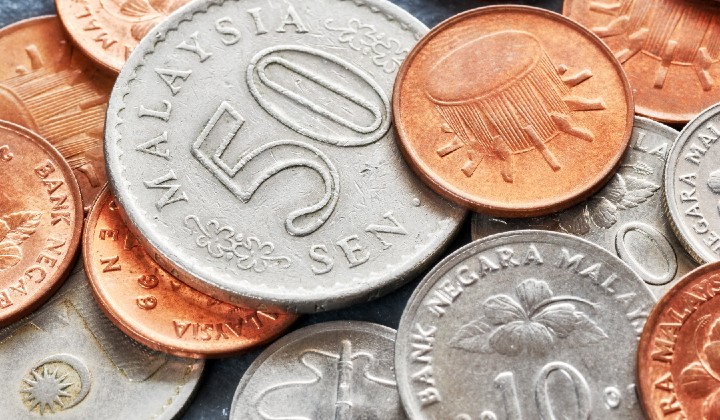
Business & services
- Restaurants, eateries, food stalls, food trucks, roadside hawkers, travelling hawkers, food courts, hawker centres, roadside food stalls or kiosks are allowed to operate between 6 am and 10 pm – only via takeaway, drive-thru, or deliveries. Dine-ins as well as park-and-dine (drive-ins) are not allowed.
- Outdoor picnics are not allowed.
- Grocery shops and convenience stores are allowed to operate between 8 am and 8 pm.
- Daily necessities stores such as hardware stores, workshops, baby goods stores, and religious item stores are allowed to operate between 8 am to 8 pm.
- Healthcare services such as clinics, hospitals, and medical laboratories can operate for up to 24-hours or according to operating permit license.
- Petrol stations can operate from 6 am to 8 pm. Stations located on highways CAN operate for 24-hours.
- Supermarkets, hypermarkets, and departmental stores are open from 8am to 8pm. (subject to the List of Essential Services by Trade – Distribution Sector).
- Pharmacies, personal care stores, convenience stores, mini marts, books and stationery shops, computer and telecommunications, and electrical appliances shops are allowed to operate from 8am to 8pm.
- Barber shops and beauty salons are allowed to operate from 8am to 8pm and provide basic haircuts only.
- Veterinarian clinics and pet shops are allowed to operate from 8 am to 8 pm.
- Laundromats (including self-service) and optical stores are allowed to operate from 8 am to 8 pm. Self-service laundromats must have employees at premises to maintain SOP compliance.
Markets

- Daily markets and public markets are allowed to operate from 6 am and 2 pm with permission from Local Authorities (PBT) with compliance to SOP and supervision from RELA or PBTs.
- Regulated Fresh Markets (PST) are allowed to operate from 7 am to 12 pm.
- Permanent Farmers’ Market (PTK), MyFarm Outlet (MFO), and Farmer Association Complex (PPK) are allowed to operate from 6 am to 4 pm.
- Wholesale markets are allowed to operate from 12.01 am to 6 am and 11 am to 4 pm – subject to permission from PBT with compliance to SOP and supervision from RELA and PBTs.
- Farmers’ markets and day markets are allowed to operate from 7am to 11am and are limited to primary commodities as prescribed by the Ministry of Agriculture and Food Industry (MAFI) .
- Night markets and weekly markets are not allowed to operate.
Agriculture, fisheries, livestock, plantations, and commodities
- Subject to the List of Essential Services by Sector – Agriculture, Fisheries, Livestock, Plantations, and Commodities allowed.
- Fishing for subsistence is allowed.
Mining and construction
- The operation of mines and quarries is allowed with an employee capacity of up to 80% – subject to Mining and Construction SOPs.
Education
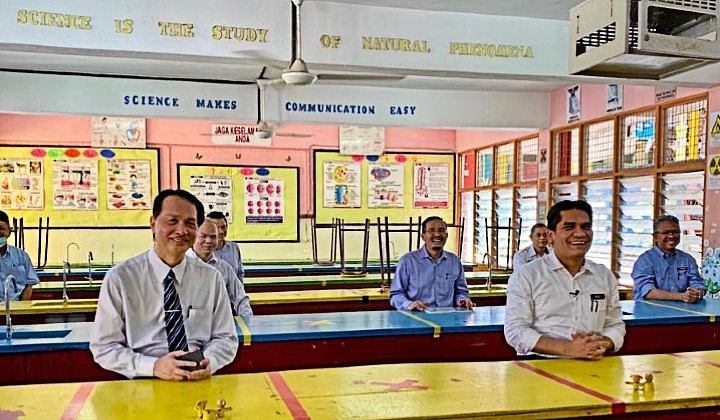
- ALL public and private Institutes of Higher Learning (IPT), Vocational Training Institutes, schools not managed by the Education Ministry (MOE), Islamic tahfiz facilities, and other educational facilities are closed. IPTs under the management of the Higher Education Ministry (MOHE) are continued through online sessions.
- ALL schools under MOE, private educational facilities that are categorized as schools, and education centres like tuition centres, language centres, practical skill centres, guidance centres, and other facilities registered under MOE will be closed.
- Students and candidates who sit for the Sijil Pelajaran Malaysia (SPM) Examination in 2021, Sijil Tinggi Persekolahan Malaysia (STPM), Sijil Vokasional Malaysia (SVM), Sijil Tinggi Agama Malaysia (STAM), Sijil Kemahiran Malaysia (SKM), Diploma Vokasional Malaysia (DVM) and equivalent international examinations, are allowed to attend schools across districts and states lines according to the school calendar set by the Ministry of Education Malaysia (MOE) with confirmation documents from the MOE, MARA, or the relevant Ministry/Agency. Movement to and from school can be accompanied by a caregiver.
- The movement of teachers or teaching staff for the purpose of Teaching and Learning of the classes involved in the examination is permitted with the endorsement of KPM, MARA, or the relevant Ministry/Agency.
- Movements for the admission of students to boarding schools for examination classes set by the MOE are permitted with the approval of the MOE, MARA, or the relevant Ministry/Agency.
- Students who need to cross states from Peninsular Malaysia to Sabah, Sarawak, and WPLabuan or vice versa, must comply with the quarantine rules in force.
- Only students in international/expatriate schools that are participating in international examinations are allowed to be physically present and sit for examinations as scheduled by the international examination bodies.
- Face-to-face teaching and learning (PdP) activities are not allowed except for IPT students ‘in need’.
- International examinations, professional bodies, and research activities that require the use of laboratories at IPT facilities are allowed in accordance with standard operating procedures (SOP) provided by IPTs along with permission to travel/move by KPT or the IPT in question.
- Students in boarding schools, universities or other institutions are ALLOWED to remain there and continue ‘hybrid’ learning.
Kindergartens, daycare & special care facilities
- Local/international/expatriate, public or private kindergarten, TABIKA, TASKA and child development centres for 4 to 6 year-olds are not permitted to operate, except, if both of the child’s parents are frontliners and work in essential services.
- Residential care centres or rehabilitation centres for children, people with disabilities (OKU), seniors, women, and various other care centres are allowed to operate in accordance with the SOP determined by associated Ministries and Agencies.
Religious activities
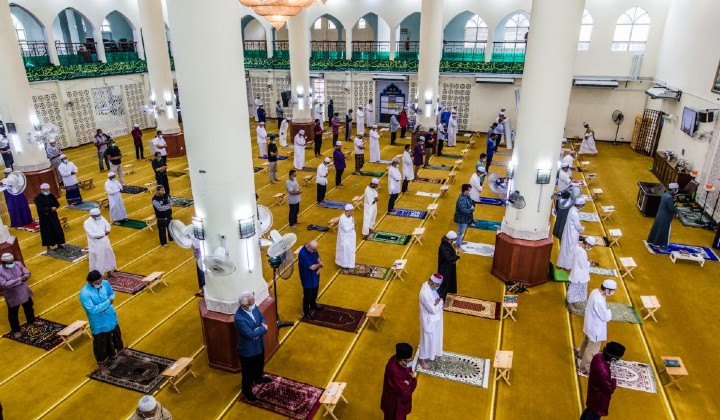
- Congressional compulsory prayers (solat fardu berjemaah) is limited to 12 members and is subject to the State Religion Authority.
- Activities that are not allowed are subject to the State Religion Authority.
- ‘Akad Nikah’ or solemnization are allowed to take place only at the State Religious Authority/Department offices – attendance will be determined by each respective state’s religious authority.
- Muslim funeral processions are allowed according to regulations provided by State Religious Authority.
- Attendance and activities at non-Muslim places of worship are limited to a maximum of 12 worshippers only.
- Marriage registrations for non-Muslims at the National Registration Department (JPN), places of worship, and religious associations are allowed – attendance is subjected to regulations made by JPN.
- Funeral processions for non-Muslims are allowed with regulations set by the National Unity Ministry (KPN).
Sports and recreation
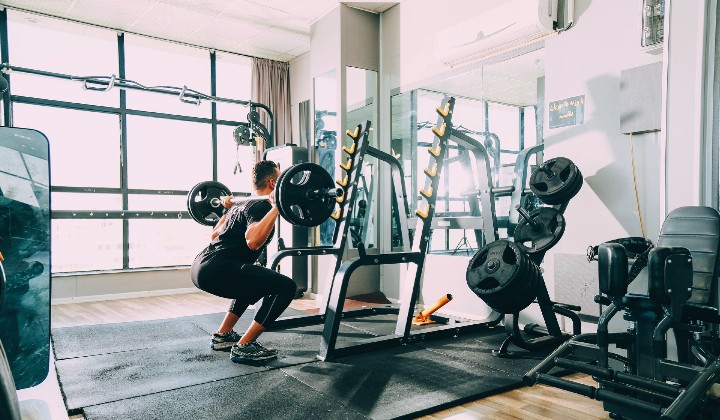
- All individual sports and recreational activities without physical contact for the purpose of health, fitness, and self training by adhering to physical distancing of at least 2 to 3 meters and performed in open areas, including semi-open areas, within 10km of residence from 6.00 am to 8.00 pm. For example, jogging, exercise, taichi, cycling, skateboarding, fishing, equestrian, archery, climbing, tennis (singles), golf, motorsports, and alike.
- The operation of all open (outdoor) sports and recreation facilities, including semi-open with compliance to 50% capacity/area. Meanwhile, the operation of open (outdoor) and semi-open public sports and recreation facilities is SUBJECT to the Local Authority (PBT).
- The operation of all sports and recreational facilities EXCEPT for the open (outdoor) and semi-open facilities is RESTRICTED to necessary management purposes (finance, maintenance, and the like) only with no more than 30% capacity.
- Organization of closed-door tournaments or competitions WITHOUT the presence of spectators/supporters according to the Sports Bubble Model is LIMITED to the ones organized by the Ministry of Youth and Sports (KBS), the Malaysian Football League and the Petronas CubPrix Championship only.
- Centralized training programs conducted by the National Sports Council (MSN) and State Sports Council (MSN Negeri) using the Camp Based Training concept.
- Centralized quarantine training, including training matches, for teams in the Malaysian Football League (MFL) using the Sports Bubble Model.
- The participation of Malaysian athletes/coaches/officers/technicians in tournaments or competitions or competitions abroad is SUBJECT to the approval of the Malaysian Immigration Department (JIM) WITH the support of KBS/MSN.
Creative industry

- The development and broadcasting of creative content, recorded or live broadcast, including animation, filming, drama, promotion, sitcoms, and the like, including theatrical activities, theater arts, musical arts, cultural and heritage performances, and live music artists are not allowed except for talk shows and live streaming. .
- Recorded or live broadcasts of informational, news, forums, and talk shows (non-entertainment ones) are allowed.
Other activities
- ANY ACTIVITIES NOT LISTED IN THIS SOP WILL NOT BE PERMITTED.
List of Essential Services Permitted To Operate
- Food and beverages (including animal feed).
- Health and medical care including dietary supplements, care products as well as veterinary clinics and services.
- Water.
- Energy.
- Security (security and safety), defence, emergency, welfare, and humanitarian aid.
- Solid waste management, public cleaning/sanitation and sewerage.
- Transportation by land, water, or air.
- Port, shipyard, and airport services and operations, including loading, cargo handling and piloting, and the storage or packing of commodities.
- Communications including media, telecommunications, and internet, post and courier services as well as broadcasting (for the purposes of news and alike).
- Banking, insurance, takaful, and capital markets.
- Pawnshops and community credit facilities.
- E-commerce and information technology.
- Production, distillation, storage, supply, and distribution of fuels and lubricants.
- Hotels and accommodation (only for the purpose of quarantine, segregation, employment for necessary services – not tourism).
- Critical construction, maintenance and repair.
- Forestry and wildlife services (limited to enforcement).
- Legislation and the judiciary.
- Lawyers and commissioners of oaths.
- Logistics limited to delivering necessary services.
List of Essential Services By Sector
Production (worker capacity 80%)
- Aerospace (components and maintenance, repair and overhaul – MRO).
- Food and beverages.
- Packaging and printing materials related to food and health materials.
- Personal care items and detergents.
- Health care and medical products.
- Personal care items, personal protective equipment (PPE) including rubber gloves and fire safety equipment.
- Components for medical devices.
- Electrical and electronics (crucial to the global economic chain).
- Oil and gas including petrochemicals and petrochemical products.
- Machinery and equipment.
- Textiles for PPE production.
- Production, distillation, storage, supply and distribution of fuels and lubricants.
- Automotive (vehicles and components)
- Ceramics
- Cement
- Rubber
- Iron and steel
- Furniture manufacturing for export
Agriculture, fisheries, farming & commodities (optimum worker capacity)
- Agriculture, fisheries and farming (livestock) including its chain of activities/services.
- Plantation and commodities including its chain of activities/services (palm oil, rubber, pepper, cocoa).
- Small-scale logging activities are subject to the SOP of the Ministry of Energy and Natural Resources (KeTSA).
Construction
- Critical maintenance and repair work.
- Major public infrastructure construction works.
- Building construction work that provides complete employee accommodation on the construction site.
- Construction with workers stationed in approved Centralized Labour Quarters (CLQ).
- Small scale construction and projects managed by G1 and G2 grade contractors.
- Renovation of private residential and commercial buildings.
- Land survey.
Trade & distribution
- Shopping malls are CLOSED, except for supermarkets, hypermarkets, departmental stores, AND all necessary services listed.
- Supermarkets, hypermarkets, and department stores INCLUDING all necessary services listed.
- Pharmacies, personal care, variety stores, and mini mart.
- Restaurant.
- Laundry (including self-service)
- Pet care and pet food stores.
- Optometry and optical goods store.
- Hardware store.
- E-commerce (all product categories).
- Wholesale and distribution (all categories of necessary service products only).
- Books and stationery shops.
- Computer and telecommunications.
- Electrical appliance.
- Barber shops (basic haircuts only).
- Beauty salons (basic haircuts only).
- Car wash.
- Vehicle workshop, maintenance, and spare parts.
- Other Specialty Retail Stores (gas stations).
Others
- Any services, employment, industry, business set by the Government after consulting with the authorities that regulate such things.
*ACTIVITIES NOT LISTED IN THIS SOP ARE NOT PERMITTED
Negative List – prohibited activities
Economic activities
- Spas, reflexology centres, massage centres, wellness centres, beauty salons, barbers, as well as manicure and pedicure services.
- Cybercafes and internet centres.
- Driving school/centre, maritime, and aviation training centres.
- Photography.
- Casinos, horse race tracks, and lottery centres.
- Alcohol breweries and liquor stores.
Entertainment activities
- Nightclubs and pubs.
- Cinemas or movie theatres.
Social activities
- Formal or informal, governments or public sector events.
- Social events such as; festive celebrations, ‘kenduri’ or feasts, events, engagement parties, wedding receptions, Aqiqah, Tahlil, and ‘doa selamat’ events, anniversaries, birthdays, reunions, retreats, and other social gatherings.
- Having guests or visitors at one’s residence, except, in cases of emergencies or for item deliveries.
- Face-to-face seminars, workshops, courses, training, conferences, talks, exhibitions and meetings, incentives, conventions and exhibitions (MICE).
Tourism and cultural activities
- Public tourist attractions such as; zoos, farms, aquariums, edutainment centres, extreme, adventure, nature parks, and others.
- Art, cultural and heritage centres such as; museums, libraries, art galleries or cultural heritage villages, performance stages, and others.
- Theme parks, family entertainment centres, indoor playgrounds and karaoke places.
- Tourism activities outside district or state boundaries.
- International and domestic tourism activities by locals and domestic tourism activities involving foreigners entering Malaysia.
Sports & recreation activities
- ALL UNLISTED sports and recreational activities
- Operation of ALL sports facilities and premises, EXCEPT public parks allowed by PBT.
- Sports and recreational activities carried out in groups or involving physical contact.
- The organization of all tournaments or competitions EXCEPT those organized by the Ministry of Youth and Sports (KBS), Malaysian Football League, and Petronas CubPrix Championship only.
- Attendance of spectators or supporters at sports and recreation events.
- The participation of Malaysian athletes/coaches/officers/technicians in tournaments or competitions or matches abroad WITHOUT the approval of the Malaysian Immigration Department (JIM) and the support of KBS/MSN.
- Sports and recreational activities conducted outside of or across MCO enforcement areas, EXCEPT with permission from PDRM.
Creative industry
- Performances at hotel lounges.
- Indoor or outdoor busking, street performing (except at PPVs).
Other prohibited activities
- Any activities that involve mass gatherings, that can and may complicate/hinder physical distancing efforts as well any other activities, by order of the Health Department Director.
- Other matters will be determined by the government from time to time.
Share your thoughts with us via TRP’s Facebook, Twitter, and Instagram.
0 Comments